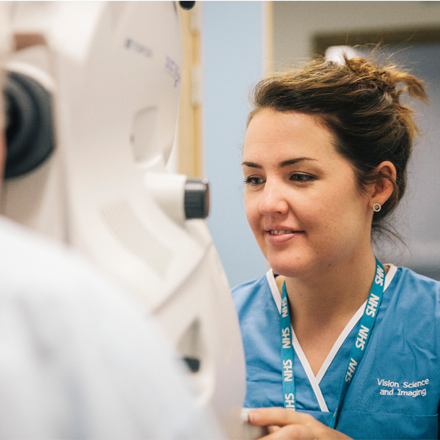Improving wet AMD care through patient experience

Mr Martin McKibbin, Gloucestershire Hospitals NHS Foundation Trust - £21,922
Understanding how patients experience treatment for wet age-related macular degeneration (AMD) is vital to improving care. This study is developing a new way to collect patient feedback across the NHS, ensuring that future treatment pathways reflect the real needs and experiences of those living with wet AMD.
What is the problem?
While treatments for wet AMD have advanced in recent years, the way care is delivered within the NHS could be improved. To achieve this, we need to understand what matters most to patients.
Patient-reported experience measures (PREMs) capture people’s views on their healthcare, such as waiting times, information provided, and overall satisfaction. This project aims to design a PREM specifically focused on wet AMD care, helping to identify strengths and areas for improvement across NHS services.
What are they doing?
The research team will explore what contributes to both positive and negative treatment experiences. Their findings will guide the development of a validated PREM that can be used across multiple NHS eye clinics. Collecting this data from large numbers of patients will allow for meaningful comparisons between treatment centres, highlight best practice, and drive improvements in the provision of care.
How can this help?
By placing patients’ voices at the centre of care, this project aims to improve treatment experiences, reduce anxiety, and improve treatment adherence and outcomes. In the long term, the new PREM will provide benchmarks to measure performance and drive continuous improvement in wet AMD services across the UK.
See our other projects
Since 1987 the Macular Society has invested around £10 million in over 100 research projects.
Explore more research
Beating macular disease through funding medical research and improving the lives of those living with macular disease.
Get the latest research news from the Macular Society
To hear about life-changing research and treatments, subscribe to our monthly enewsletter today. Together we can Beat Macular Disease.
Sign up to our free email newsletter



